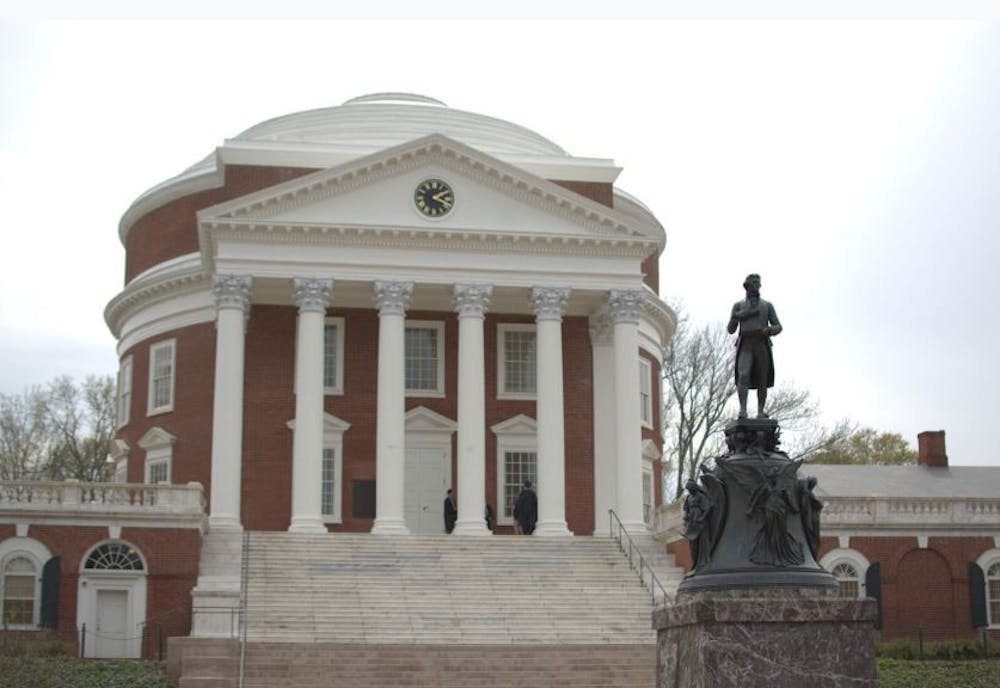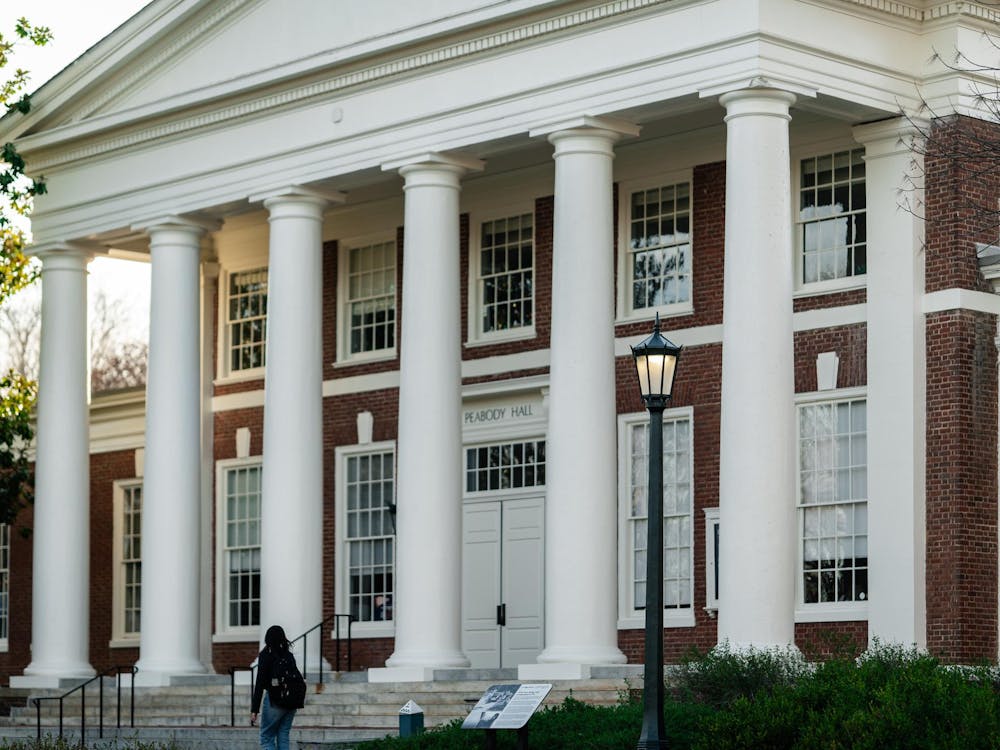University President Jim Ryan’s recently established community working group has already begun its mission to evaluate the relationship between the University and the surrounding community with its first meeting Nov. 5. Ryan announced the creation the working group in October to begin the lengthy process of identifying ways in which the University — along with the City of Charlottesville, Albemarle County and other areas — can strengthen its bond with the local community and seek means for improvement.
Professors, community members and a University Law student currently comprise the 16-member group. In an email statement to The Cavalier Daily, University Deputy Spokesperson Wes Hester said the group’s highest-priority issues might include wages, housing, education and healthcare.
The group’s current mission is to first identify the underlying issues straining the communal relationship between the University and surrounding communities before it compiles action recommendations to be delivered to Ryan in February. Juandiego Wade, chair of the Charlottesville School Board and co-chair of the working group, said the body plans to take their charge with an open mind.
“We’re not going to go and say, ‘We know that living wage is an issue and so is affordable housing,’” Wade said. “We’re going to go with a blank slate.”
Devising their strategy
In contrast to the University’s previous pushes for community engagement, Ridge Schuyler, working group appointee and Piedmont Virginia Community College’s dean of community self-sufficiency programs, characterizes the group’s strategy as a holistic one. Schuyler serves on Charlottesville’s Housing Advisory Committee — a 21-member board tasked by the City Council with developing and recommending housing strategies and policy for approval by the Council.
Schuyler has also been instrumental in documenting the local struggle for workforce development and affordable living through his work in co-authoring three “Orange Dot” reports on the issue since 2011 — the most recent of which was published in October.
“I have worked with the University of Virginia to address the issue of the number of families who are being left behind in our economy, but it’s never been a holistic approach — it’s a piecemeal approach,” Schuyler said. “This working group allows us to take a holistic view of the University and the community and their relationship.”
Before the group’s formation, University initiatives to bolster “town-gown” relations have included focused efforts to increase neighborhood engagement, an annual Day of Caring during which University employees volunteer for local nonprofits and Hoos Reuse to encourage students to donate gently used items to local nonprofits during move-out.
Why wages matter
Schuyler said he particularly hopes to bring his knowledge and expertise in wages and affordable housing to the group, citing the statistic that 25 percent of families in Charlottesville don’t make enough to meet their basic needs despite the City’s contrastingly low unemployment rate of 2.9 percent. Since 2011, average rent rates in Charlottesville have increased 42 percent — from $931 per month for a two-bedroom apartment to $1,325 per month — an upward trend not paralleled by increasing wages.
Increasing rent and stagnant wages have risen to a particular salience in the City and the University as a mounting affordable housing crisis — in part due to the rise of off-Grounds student housing — has become evident in the last decade. This expanding gap between wages and rent has long-animated activists in a campaign for a living wage at the University.
Suzanne Moomaw, an associate professor of urban and environmental planning in the School of Architecture, previously told The Cavalier Daily that the high student demand for housing close to the University has increased rent prices across Charlottesville, limiting the availability of affordable housing in recent years. A housing needs assessment recently commissioned by the City found that 1,750 households spend more than half of their income on housing.
Ariana DeLaurentis, a third-year College student and representative for the Living Wage Campaign at U.Va., said her organization has been fighting for a living wage for employees at the University — $12.03 in Charlottesville for a single adult, or $16.84 for a family of four — for 20 years, making the organization the longest-running unsuccessful campaign for a living wage at a public university. Currently, the University pays workers a minimum wage of $12.38, while Aramark, the externally-contracted provider for University dining services, pays employees $10.65 an hour.
The University’s history in regard to worker compensation leaves DeLaurentis and the rest of the Living Wage Campaign hesitant to trust Ryan’s latest initiative to combat the issue.
“For all his rhetoric of being a better neighbor, we remain to be convinced that he is truly committed to helping students and workers until real action is done,” DeLaurentis said in an email statement. “We recognize that forming a committee is not the same thing as implementing a living wage.”
As the largest employer in the City of Charlottesville, the University is in a unique position to directly acknowledge its effect on Charlottesville residents’ standard of living.
“Until the University recognizes its role as the largest employer in the City of Charlottesville, and until the University recognizes the need to take care of its employees in appropriate ways, we will never ever solve that deep racial divide that exists in Charlottesville,” retired history Prof. Phyllis Leffler said in an interview with The Cavalier Daily. “The University has the opportunity to do the right thing.”
Who’s in the group?
DeLaurentis also criticized the makeup of the working group — which she says fails to include workers and community members directly impacted by the group’s initiatives.
“As much as President Ryan talks about wanting to be a better neighbor to the surrounding community, the committee’s makeup fails to center voices of those most directly affected by UVA’s encroachment into the greater Charlottesville area,” DeLaurentis said.
Those born and raised in Charlottesville might wield vastly different perspectives than University faculty and influential community members, according to DeLaurentis, who raised doubts concerning the authenticity of the group’s perspectives on inequality, power and University relations in the City.
Hester said one of the tasks of the currently-established working group will be to consider what additional stakeholders may need to be represented in the potential formation of a board or council that would carry out the recommendations set forth by the group.
However, Wade, an active community member and Charlottesville resident for nearly 30 years, said he isn’t worried about the group’s composition.
“As I look at the committee … I know well over half of them, and they’re a fabulous group of people,” Wade said. “Many of them have already done things in the community. I know where their heart lies, I know where their interest lies, and I think that President Ryan saw that as well.”
University professors and administrators, as well as several prominent community members, comprise the majority of group appointees; however, Toccara Nelson, a third-year Law student, stands out as the only University student to be appointed. In an interview with The Cavalier Daily, Nelson said she plans to bring various perspectives — not just that of a University student — as “value-added” to the working group.
“Talking with employees at the University, talking with the citizens of Charlottesville, I have my perspective as a student,” Nelson said. “I also have my perspective as a person — as a black, queer woman from Detroit — that adds in the perspective that I come from a lot of different marginalized groups.”
With regards to Nelson’s appointment as the only student in the group, Hester said Nelson would be able to accurately represent the voices of many segments of the student population through outreach and communication efforts.
Nelson emphasized the importance of community engagement to the working group’s mission, adding that instituting a living wage for community members employed by the University and its role in addressing the local affordable housing crisis should be top-priority issues for the group.
“I think we, as members of the University, have a lot to learn from community members because this is where they live — where they eat, breathe and sleep everyday,” Nelson said. “We need to privilege and cherish those perspectives — learn from them, and take those learnings, implement them into identifying issues and hopefully further down the line.”
While Nelson commended Ryan for creating the group — and his announcement in October that students from low- and medium-income Virginia families will be able to attend the University at significantly-reduced costs — she added that outreach into the local community will be crucial to the body’s success.
At the group’s first meeting Nov. 5, Wade said Ryan was very open to idea of the group addressing a wide variety of issues of local concern, adding that he said nothing was off-limits.
Appointees gathered for a second meeting Nov. 13 at Piedmont Virginia Community College to begin a discussion of how to gather community input. Wade said the group has not yet conclusively determined how to best gauge public opinions, but he foresees a formulation of more concrete strategies during their next meeting on Dec. 12. He added that while no formal decision has been made by the group, the meetings will likely not be open to the public.
According to Hester, Ryan appointed members to the group only after consultation with key stakeholders within the University and local community but did not further elaborate on the specifics of the selection process.
Although DeLaurentis remains hesitant about whether the working group will incite real action on behalf of the University, Wade said he is largely optimistic for the future of the group — especially under the new president.
“Certain people in the public will say ‘This is just another study, why are they doing it?’” Wade said. “But we have a new president, and to be honest, it’s just a different vibe with President Ryan — it’s a really positive vibe, and people are ready to believe that he is ready to want these recommendations, that when this list is delivered to him, he is going to pick it up and run with it.”







